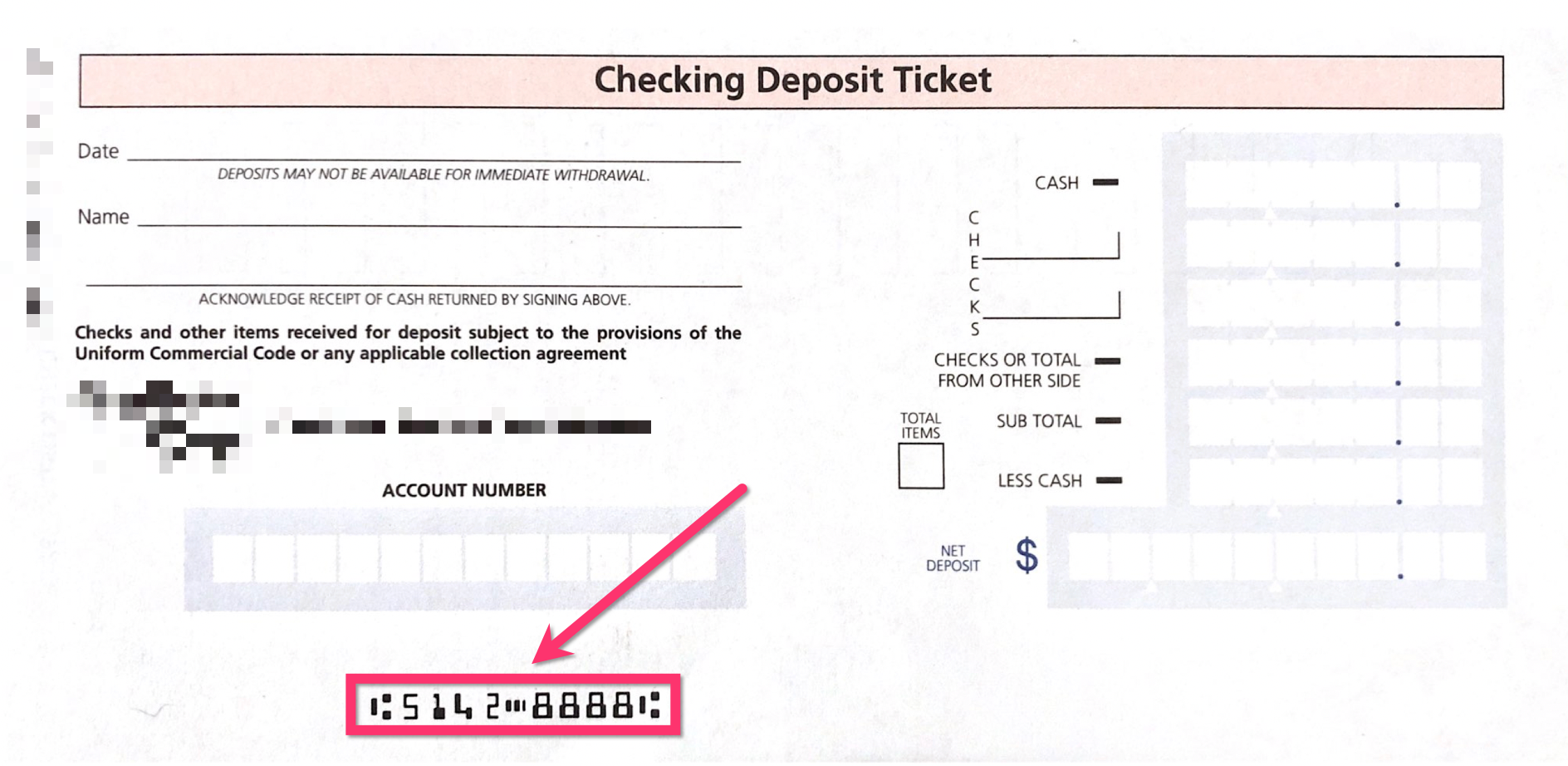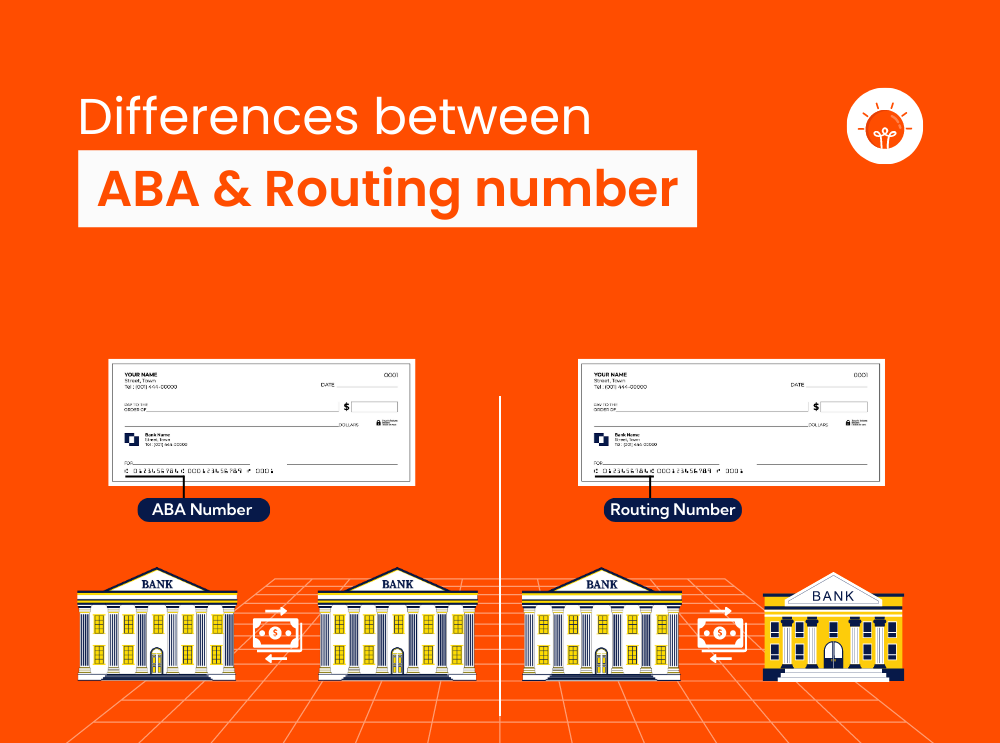An ABA number, also known as the American Bankers Association routing number, plays a pivotal role in the financial ecosystem of the United States. This unique nine-digit code is crucial for facilitating seamless transactions, including direct deposits, wire transfers, and automated clearing house (ACH) payments. Understanding what an ABA number is and its importance can significantly enhance your banking experience, ensuring that your financial transactions are processed accurately and efficiently. In this article, we delve deep into the world of ABA numbers, shedding light on their significance and functionality.
The ABA number system was introduced in 1910 to streamline banking operations and reduce errors in processing checks. Over the decades, its scope has expanded to encompass various electronic transactions, making it an indispensable part of modern banking. Whether you're a business owner managing payroll or an individual setting up automatic bill payments, knowing what is ABA number and how it functions can save you time and potential headaches. Let's explore the nuances of this essential banking component in detail.
As we proceed, this article will provide a step-by-step guide to understanding ABA numbers, their structure, and how they are used in different types of transactions. We'll also touch on common mistakes people make when entering their ABA number and how to avoid them. By the end of this article, you'll have a comprehensive understanding of what is ABA number and why it matters in today's financial landscape.
Read also:Tampa International Airport Hours Your Ultimate Guide For Travel Planning
What is ABA Number and Why Does it Matter?
The American Bankers Association (ABA) number is a unique identifier assigned to each financial institution in the United States. It is a critical component for processing checks and electronic transactions. This nine-digit code ensures that funds are routed to the correct bank or credit union, making it an essential part of the banking infrastructure. So, why does the ABA number matter? Its primary function is to facilitate accurate and efficient financial transactions, minimizing the risk of errors and delays.
Where Can You Find Your ABA Number?
Locating your ABA number is straightforward. It is usually found at the bottom of your checks, preceding your account number. Additionally, most banks provide this information online through their customer portals or mobile apps. For those who prefer digital banking, accessing your ABA number is as simple as logging into your account and navigating to the account information section. Understanding where to find your ABA number is crucial, especially when setting up direct deposits or initiating wire transfers.
What is ABA Number Used For in Banking Transactions?
The primary use of an ABA number is in facilitating various types of banking transactions. It ensures that funds are routed to the correct financial institution, whether it's for depositing checks, setting up automatic payments, or transferring money between accounts. Without an accurate ABA number, transactions can be delayed or sent to the wrong institution, leading to potential financial complications. Let's explore some of the most common uses of ABA numbers:
- Direct Deposits: Employers use ABA numbers to deposit salaries directly into employees' accounts.
- Wire Transfers: ABA numbers are essential for sending and receiving funds domestically.
- ACH Transactions: These include automatic bill payments and transfers between accounts.
How is an ABA Number Structured?
An ABA number follows a specific format, consisting of nine digits that carry significant meaning. The first two digits indicate the Federal Reserve Routing Symbol, which identifies the Federal Reserve Bank servicing the financial institution. The next four digits represent the ABA Institution Identifier, while the final digit serves as a check digit to validate the routing number. Understanding the structure of an ABA number can help you verify its authenticity and ensure accurate transactions.
What is ABA Number Validation and Why is it Important?
ABA number validation is the process of verifying the accuracy and authenticity of a routing number. This is crucial to prevent fraudulent transactions and ensure that funds are sent to the intended recipient. Banks and financial institutions use sophisticated algorithms to validate ABA numbers, checking for errors or discrepancies. For individuals, validation can be done by cross-referencing the number with your bank's official records or using online tools provided by trusted financial services.
What Happens if You Enter the Wrong ABA Number?
Entering the wrong ABA number can lead to significant complications, including delayed transactions, returned payments, or even loss of funds. If you mistakenly provide an incorrect ABA number during a wire transfer or direct deposit setup, the transaction may be rejected or sent to the wrong account. To avoid such issues, always double-check your ABA number before initiating any financial transaction. Many banks offer tools to help verify your routing number, ensuring accuracy and preventing potential errors.
Read also:Unveiling Philip Montgomery Tulsa A Visionarys Journey Through Time
Is Your ABA Number the Same as Your SWIFT Code?
While both ABA numbers and SWIFT codes are used in financial transactions, they serve different purposes and operate in distinct contexts. An ABA number is primarily used for domestic transactions within the United States, whereas a SWIFT code is utilized for international wire transfers. Understanding the difference between these two codes is essential, especially for businesses or individuals engaging in cross-border transactions. While your ABA number ensures accurate domestic transfers, a SWIFT code facilitates global financial exchanges.
What is ABA Number in Relation to International Banking?
When it comes to international banking, the ABA number plays a limited role. It is primarily used for domestic transactions within the U.S., and its functionality does not extend to international transfers. For global transactions, SWIFT codes or IBANs are more commonly used. However, understanding what is ABA number can still be beneficial, especially for U.S.-based individuals or businesses managing both domestic and international accounts. It's important to recognize the distinction and use the appropriate code based on the transaction type.
What Should You Do if Your ABA Number Changes?
Occasionally, banks may change their ABA numbers due to mergers, acquisitions, or other operational reasons. If this happens, it's crucial to update your records promptly to avoid any disruptions in your financial transactions. Notify your employer for direct deposit updates, revise your bill payment settings, and inform any institutions or services that rely on your ABA number. Staying informed about changes to your ABA number can help you maintain smooth financial operations.
What are the Common Misconceptions About ABA Numbers?
Despite their widespread use, there are several misconceptions surrounding ABA numbers. One common misunderstanding is that all banks have the same ABA number, which is incorrect. Each financial institution is assigned a unique routing number, ensuring accurate transaction processing. Another misconception is that ABA numbers are interchangeable with account numbers, which can lead to errors and complications. Clarifying these misconceptions is vital for maintaining financial accuracy and efficiency.
What is ABA Number's Role in Modern Banking?
In today's digital age, ABA numbers continue to play a vital role in banking operations. With the rise of online banking and electronic transactions, their importance has only grown. Whether you're setting up automatic bill payments, transferring funds between accounts, or receiving direct deposits, an accurate ABA number is essential. Modern banking systems rely heavily on these routing numbers to ensure secure and efficient financial exchanges, making them a cornerstone of the financial infrastructure.
How Can You Protect Your ABA Number?
Like any sensitive financial information, it's crucial to protect your ABA number from unauthorized access. Avoid sharing it unnecessarily and ensure that any online platforms where you input your ABA number are secure and reputable. Regularly monitor your bank statements for any suspicious activity and report any discrepancies immediately. By taking proactive steps to safeguard your ABA number, you can help prevent potential fraud and maintain the security of your financial transactions.
Conclusion: The Importance of Understanding ABA Numbers
Understanding what is ABA number and its significance in the financial world is essential for anyone managing their finances. From facilitating seamless transactions to ensuring the accuracy of electronic payments, ABA numbers play a crucial role in modern banking. By familiarizing yourself with their structure, uses, and potential pitfalls, you can enhance your financial literacy and avoid common mistakes. Whether you're an individual or a business owner, mastering the intricacies of ABA numbers can contribute to a smoother and more secure banking experience.
Table of Contents
- What is ABA Number and Why Does it Matter?
- Where Can You Find Your ABA Number?
- What is ABA Number Used For in Banking Transactions?
- How is an ABA Number Structured?
- What is ABA Number Validation and Why is it Important?
- What Happens if You Enter the Wrong ABA Number?
- Is Your ABA Number the Same as Your SWIFT Code?
- What is ABA Number in Relation to International Banking?
- What Should You Do if Your ABA Number Changes?
- What are the Common Misconceptions About ABA Numbers?


